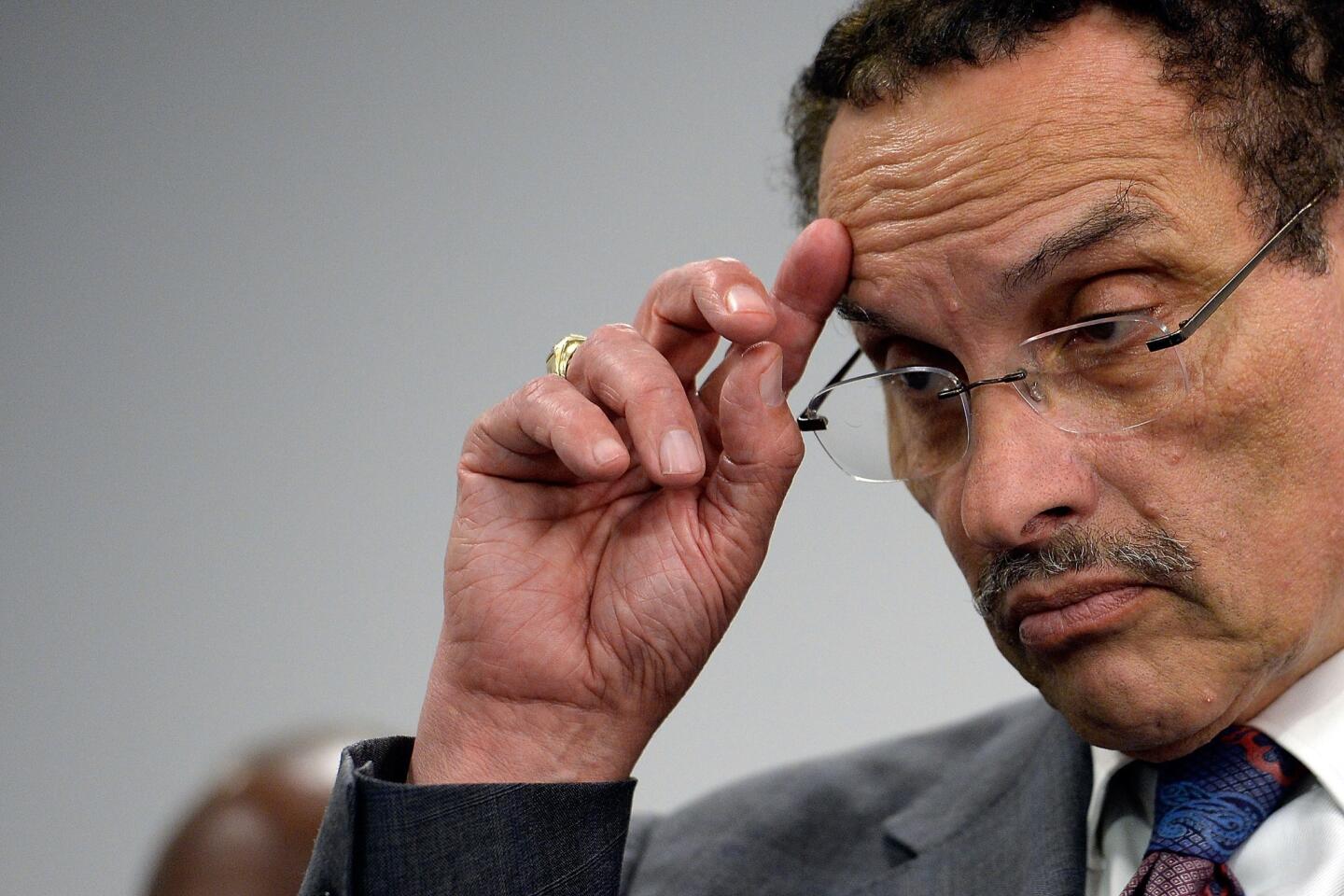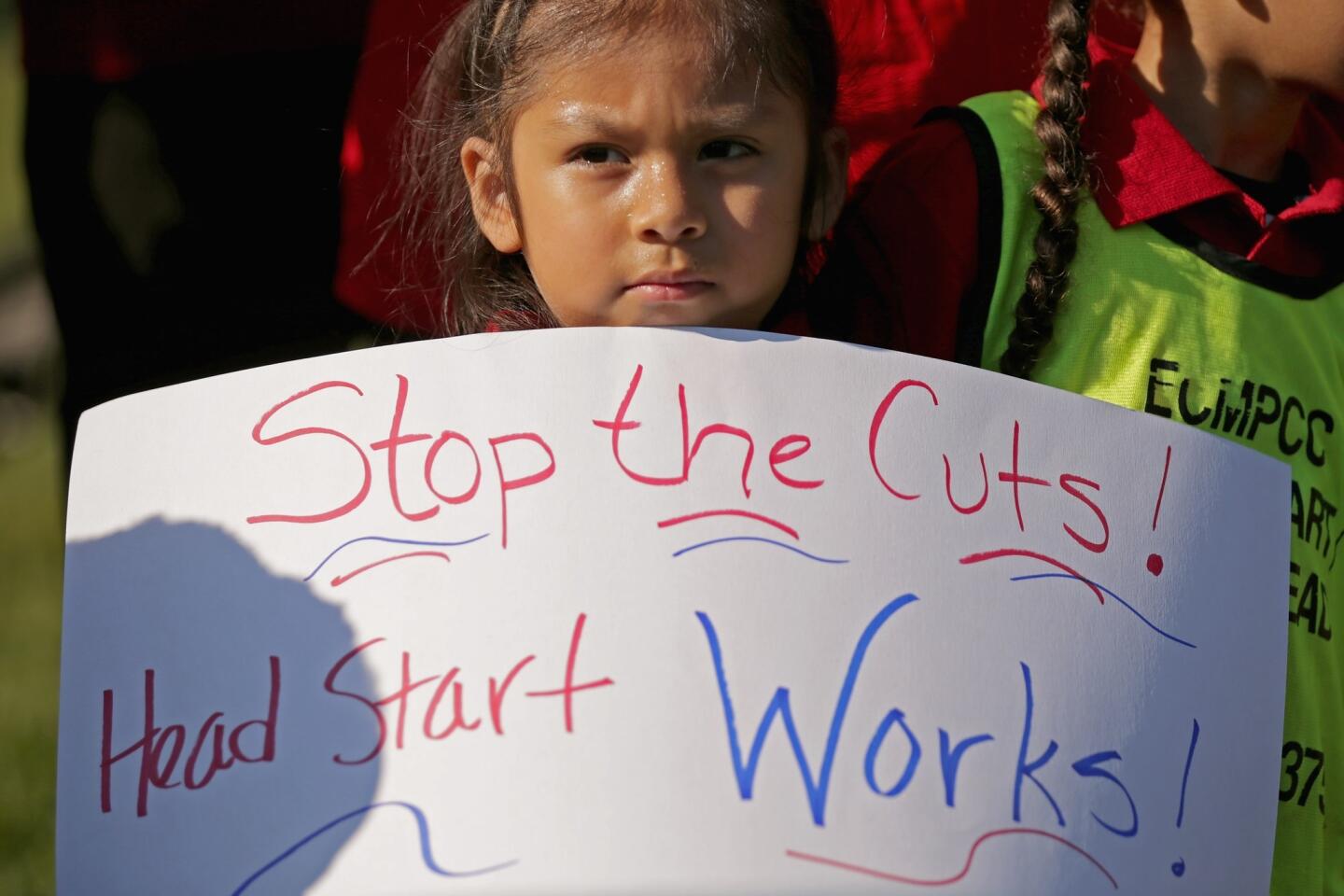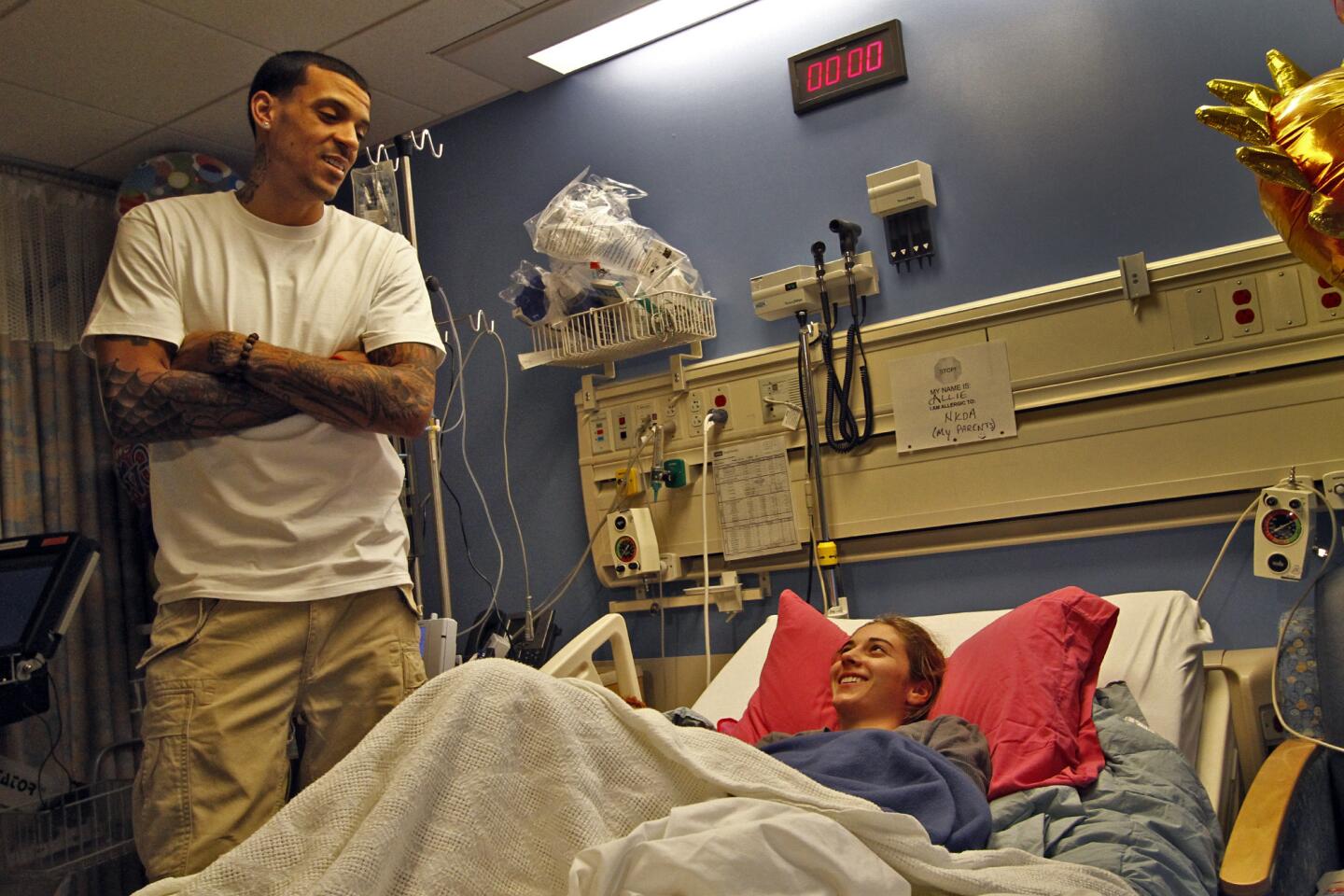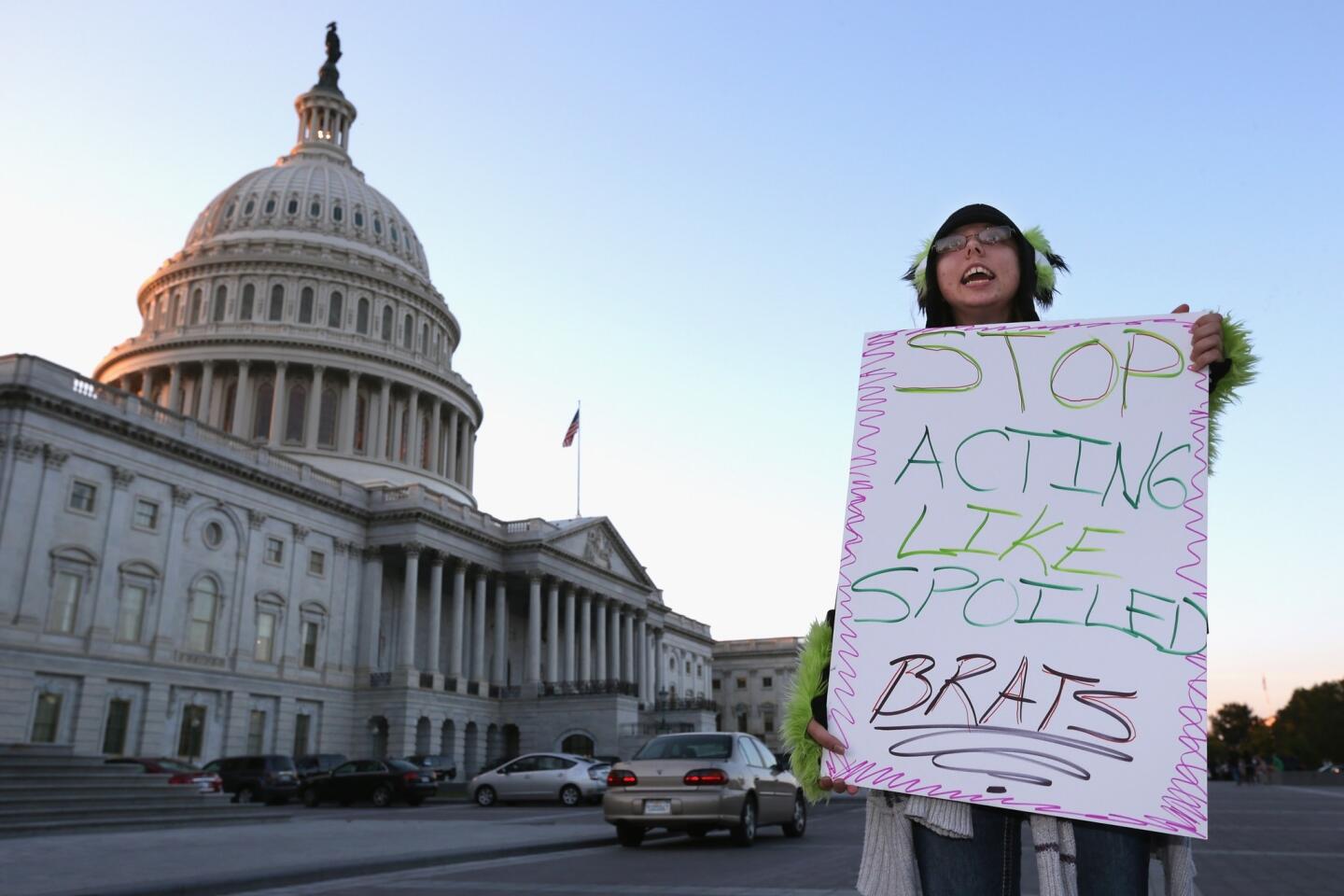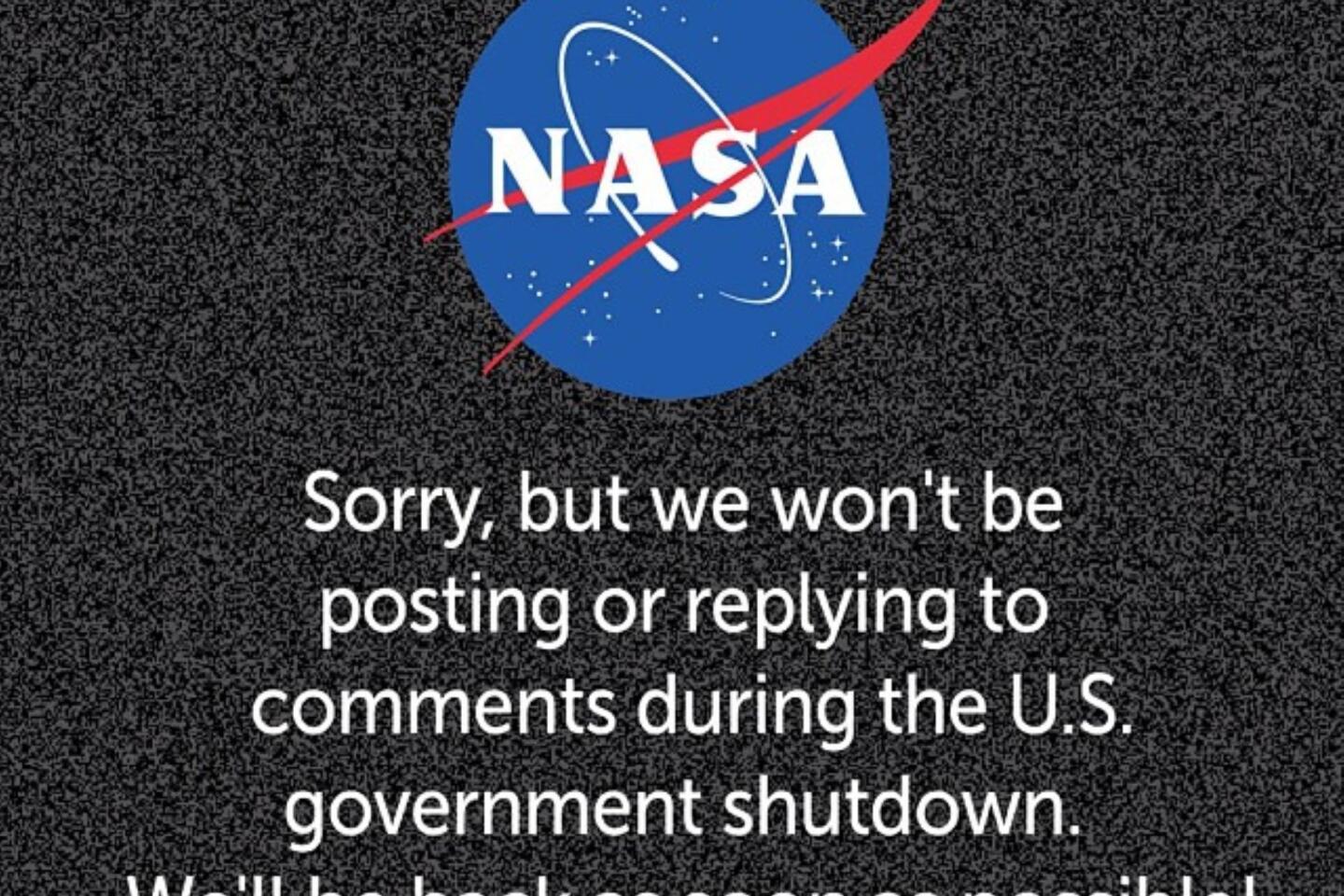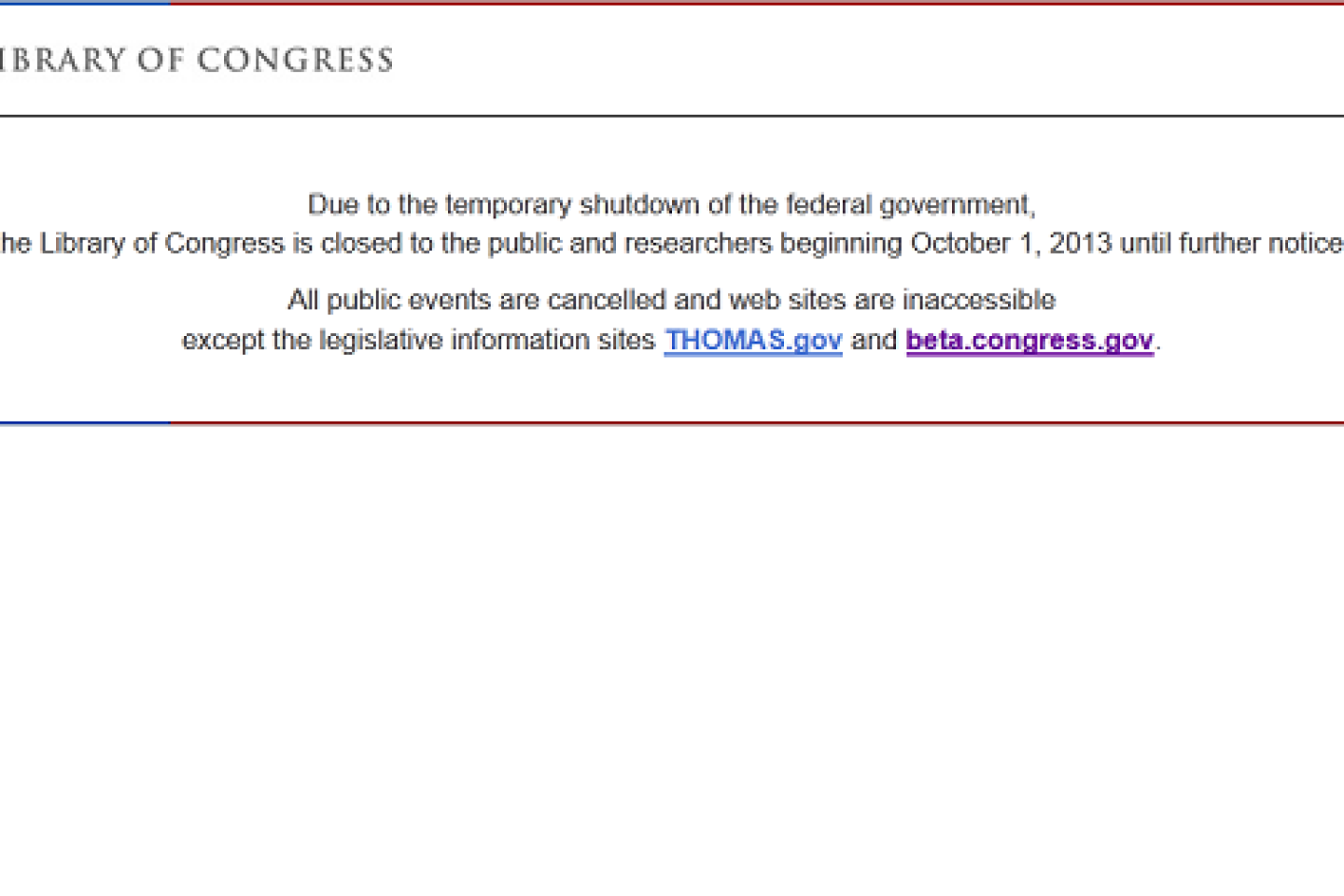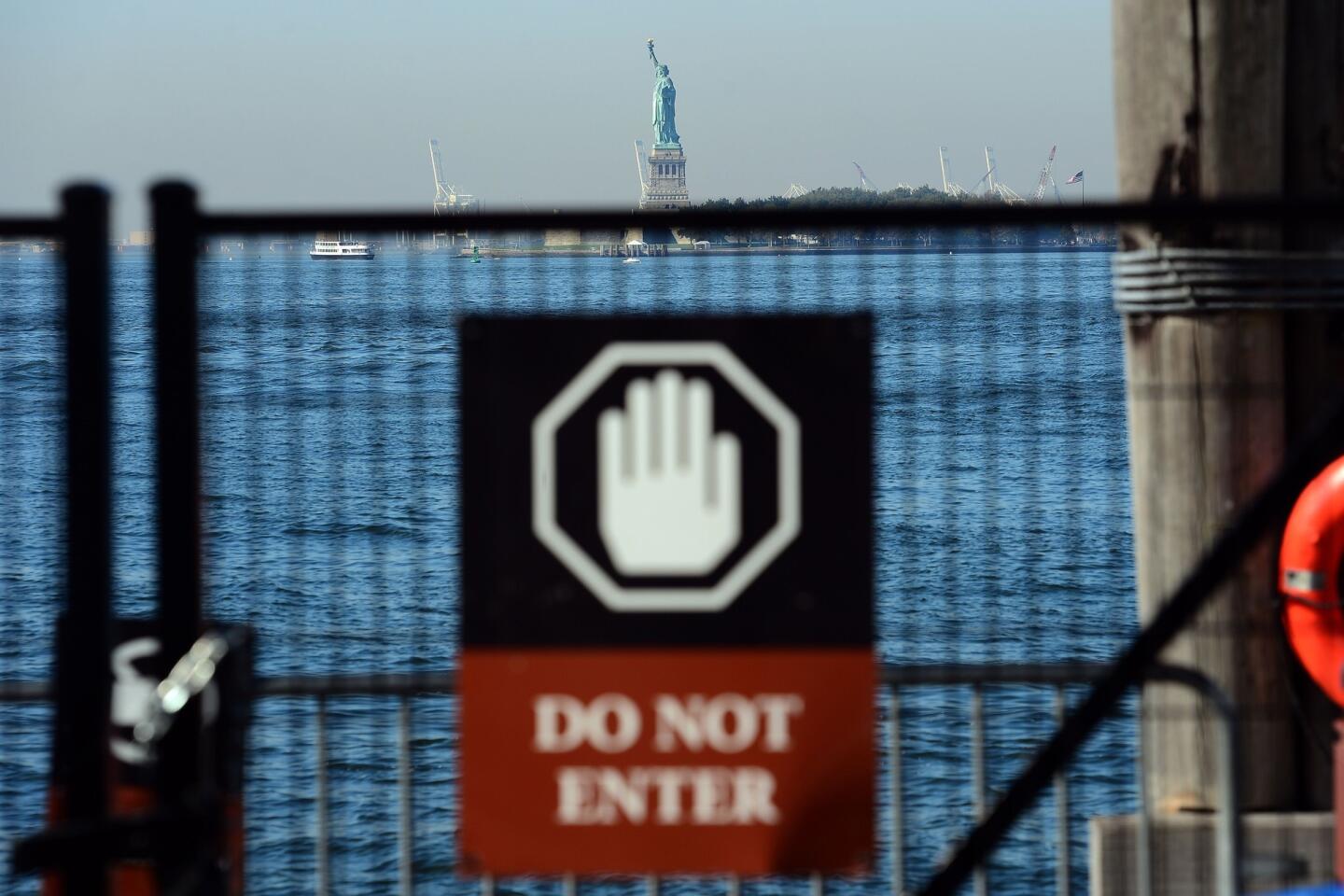Obama: Failure to raise debt limit would ‘cause economic chaos’
WASHINGTON — Failure by Congress to raise the nation’s debt ceiling would “cause economic chaos,” President Obama warned as he pressed House Speaker John A. Boehner (R-Ohio) to allow votes to reopen government agencies and allow the Treasury to continue borrowing to pay the nation’s bills.
Allowing the government to default would be “insane, catastrophic, chaos,” Obama said during an hourlong news conference, quoting language that he attributed to business leaders.
Obama said he would sign even a short-term measures that would restore government funding and raise the debt limit, giving lawmakers more time to negotiate.
FULL COVERAGE: The U.S. government shutdown
Despite that gesture, the president used strident language toward the Republicans who would be sitting at the table with him. Obama repeatedly referred to the GOP tactics in the budget standoff as demands for “ransom” and “hostage taking.”
“We can’t make extortion routine,” he said at one point, and at another referred to Republicans who have downplayed the risk of a default as “out of touch with reality.”
The news conference came as Senate Democratic leaders were honing plans to bring a bill to the floor later this week that would raise the debt ceiling. The Democratic strategy appears to be to pass such a bill in the Senate then hope that pressure from financial markets and negative polls will force the Republican-controlled House to follow suit next week as the deadline to raise the ceiling approaches.
To overcome a potential Republican filibuster, the measure would need 60 votes, which would require at least six Republicans to vote with the 54 Democrats. Several Republicans have indicated they would vote with the Democrats on the issue, but it remains unclear whether the 60 votes can be rounded up.
Obama also insisted that “no magic bullet” exists for avoiding the need to raise the debt ceiling, brushing aside arguments by some legal scholars that the president could use emergency powers to pay some bills and not others.
The Treasury Department has said Congress needs to raise the debt limit by Oct. 17 to avoid the risk of a default, although the actual point at which the government would stop paying bills is probably several days later.
Earlier in the day Obama spoke by phone with Boehner, and House leaders discussed a proposal with their members to create a bipartisan group that could negotiate a long-term solution to the budget standoff.
PHOTOS: 2013’s memorable political moments
The idea caused immediate comparisons to the ill-fated “super committee” that formed a key part of the solution to the last big standoff over the debt limit, in the summer of 2011. That panel led nowhere, so Republican leaders took pains to insist that their current idea was not a repeat. But creation of a complicated process that can allow elected officials to compromise without appearing to do so is a long-standing Washington mechanism for getting out of political jams.
In the phone call, Obama repeated previous statements that he would negotiate with Republicans over the budget, but only after they have voted to reopen government agencies and raise the nation’s debt limit.
Republicans stuck to their talking points as well, with Boehner’s spokesman characterizing Obama’s message as intransigent. “The president called the speaker again today to reiterate that he won’t negotiate on a government funding bill or debt limit increase,” spokesman Brendan Buck said in a statement.
Obama and congressional Democrats say that if Boehner would allow the House to take an up-or-down vote on reopening government agencies, the measure would pass. Public statements from members of the House suggest that is true. Enough Republicans have gone on the record saying they would vote in favor of a budget bill without strings attached -- a “clean continuing resolution,” as the Washington jargon calls it -- to combine with Democrats to produce a majority.
PHOTOS: The battle over Obamacare
Boehner so far has not been willing to allow such a vote, knowing that doing so would cause a revolt among the House’s most conservative members and further splinter an already divided Republican caucus. But he’s come under increasing pressure from party strategists who fear that refusing to allow such a vote will deepen public dismay over GOP tactics.
Recent polls have shown the public increasingly blaming the GOP, not Obama, for the standoff. Longtime Republican operatives have been going public with their worries that the current strategy is hurting the party’s prospects in the 2014 elections. Republican chances of gaining control of the Senate are at risk as are at least some GOP seats in the House.
Refusing to allow an up-or-down vote is “politically untenable,” Ed Rogers, a former Republican White House official and long-time party strategist, wrote in a blog post Tuesday. The GOP has “entered the danger zone,” he said.
Follow Politics Now on Twitter and Facebook
Twitter: @DavidLauter
Twitter: @khennessey
kathleen.hennessey@latimes.com
More to Read
Sign up for Essential California
The most important California stories and recommendations in your inbox every morning.
You may occasionally receive promotional content from the Los Angeles Times.
